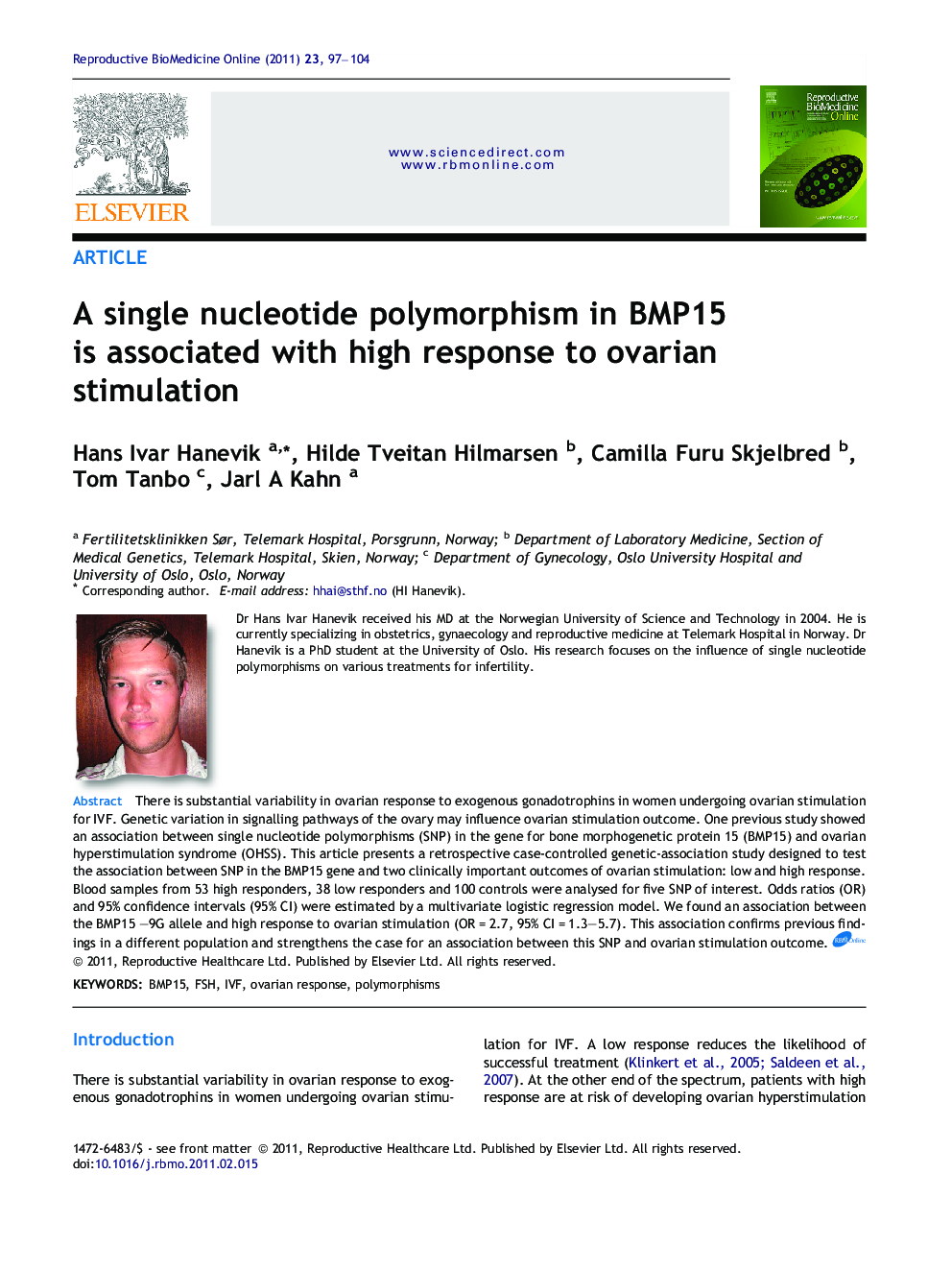| Article ID | Journal | Published Year | Pages | File Type |
|---|---|---|---|---|
| 3971480 | Reproductive BioMedicine Online | 2011 | 8 Pages |
There is substantial variability in ovarian response to exogenous gonadotrophins in women undergoing ovarian stimulation for IVF. Genetic variation in signalling pathways of the ovary may influence ovarian stimulation outcome. One previous study showed an association between single nucleotide polymorphisms (SNP) in the gene for bone morphogenetic protein 15 (BMP15) and ovarian hyperstimulation syndrome (OHSS). This article presents a retrospective case-controlled genetic-association study designed to test the association between SNP in the BMP15 gene and two clinically important outcomes of ovarian stimulation: low and high response. Blood samples from 53 high responders, 38 low responders and 100 controls were analysed for five SNP of interest. Odds ratios (OR) and 95% confidence intervals (95% CI) were estimated by a multivariate logistic regression model. We found an association between the BMP15 –9G allele and high response to ovarian stimulation (OR = 2.7, 95% CI = 1.3–5.7). This association confirms previous findings in a different population and strengthens the case for an association between this SNP and ovarian stimulation outcome.Many infertile couples are treated by IVF. Part of this treatment is to pharmacologically stimulate the ovaries to develop many oocytes simultaneously. This process is called ovarian stimulation. Some women respond either too little (low responders) or too much (high responders) to ovarian stimulation. Both these situations are unfavourable to the woman. This study evaluates whether the chance of having low or high response to ovarian stimulation is influenced by variations in the gene for bone morphogenetic protein 15 (BMP15). This was done by taking blood samples from three groups of patients: low responders, high responders and controls with a normal response. The blood samples were analysed to see if variations in the genes for BMP15 were unevenly distributed between the three groups. We found that patients having a variation in the BMP15 gene called –9G were more likely to have a high response to ovarian stimulation than controls. This confirms findings from a previous study in another population, and we conclude that the –9G variant in the BMP15 gene is likely to be associated with high response to ovarian stimulation.
